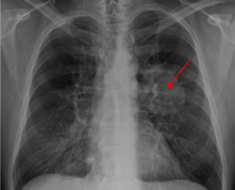New blood test which can detect prostate cancer with 94% accuracy is made available in Britain
A blood test that can help detect more than 90 per cent of prostate cancer cases is now available in Britain.
Currently, men who visit their GP with symptoms, such as trouble urinating, have a test that is around 55 per cent accurate.
This means thousands of men are wrongly told they may have prostate cancer and are sent for a painful biopsy or a scan unnecessarily.
The new test, available privately, can pick up signs of the cancer by identifying abnormalities in gene activity. Patients must fill in a form with their doctor and have a blood sample taken, which will be sent to a lab in the US for testing.
Early trials of the Prostate Screening EpiSwitch found that, when used alongside the standard test, 94 per cent of cases were picked up.

Currently, men who visit their GP with symptoms, such as trouble urinating, have a test that is around 55 per cent accurate, now a new test is being made available in Britain (stock photo)
The test looks for changes in immune cells within the blood, which flag up changes in gene activity seen in the early stages of cancer.
Prostate cancer is the most common cancer among men, affecting one in eight. But delays to diagnoses mean around 12,000 men every year do not find out they have it until the disease has already spread.
This is partly because there is no single, reliable test, with the standard prostate-specific antigen tests notorious for giving both false positives and negatives. The PSE test has taken a decade to create with experts from Oxford BioDynamics working alongside Imperial College London, University of East Anglia, Imperial College NHS Trust and experts across the UK.
Mathias Winkler, consultant urologist and surgeon at Charing Cross Hospital and Imperial College London, said the test provides ‘unprecedented accuracy’.
It is not yet available on the NHS and would need to be trialled on a broad range of men to ensure it is accurate, before it can be considered by regulators.
The Mail has fought for nearly 25 years to raise awareness of prostate cancer and treatments.
Source: Read Full Article





